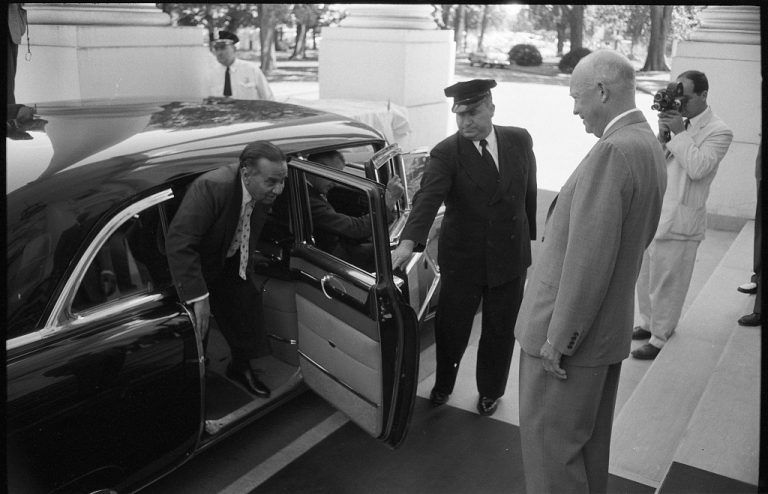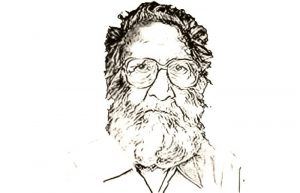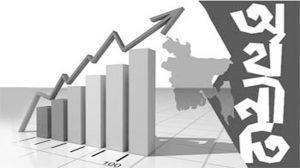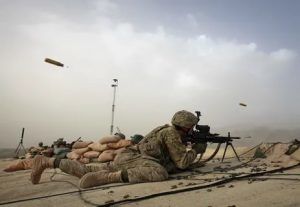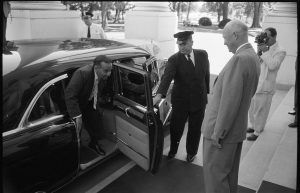Sheikh Mujib was formerly accustomed to the ideology of liberal democracy. Democracy, in his views, is particularly parliamentarian democracy practiced still in the United Kingdom. Mujib, somewhere in his autobiography published in 2012, has urged that he believed in socialism but was not communist. So it’s much derivable that he might believe in a gradual democratic fight within the legal order to avail a socialist economy for his own country. So the Leninist revolution to capture the state and establishment of communism under the guidance of one single party were not his faith points ever.
Seemingly the Labour Party in Britain was interested in uplifting themselves to the height of socialism but in a democratic process. Sheikh Mujib also seems adherent to the same ideology of the Labour Party, not to any other communist sect. The USA is not in any favor of socialist ideology but sounds not so averse to the democratic socialists of all over the world.
But the transitional changes of Mujib’s beliefs towards Soviet-based communism from democratic socialism are the roots behind the 15th of August 1975 (The killing of Mujib). But our newspapers are advocating that he was killed for his immense Bengali nationalistic compassion, but things are not like that. Whoever the people caused and backed that military coup which resulted in the killings weren’t of any less in benevolent to Bengal Nationalism. So aspirants of now have the responsibility to dig it up why Mujib, out of no visible reason, tilted towards the Soviet Union then.
Lately, a distinguished national professor of Bangladesh, Dr. Anisuzzaman (Padmabhushan), in particular, memoir-based writing, says:
“We got to know, among us, Sheikh Moni is the most intimated by the Soviets. Talking to a Moscow-based journalist made me hinted on the matter that he (the journalist) and more or less like him people have assumed Sheikh Moni as a communist by heart and establishing communism in Bangladesh is possible only under the leading by him. The counselor, a good heart in the Embassy of the Soviet Union, based in Dhaka, seems quite amicable towards Moni as well. Enormous personalities from Moscow fly down to Dhaka to see Moni and the same counselor works there as an interpreter and these foreign guests by their moves and demeanor identical to the appearances of the big shots of the communist party”
(Article: Notun Zuger Bhor (Dawn of the New Decade), Shabdaghar Magazine, January: 2018)
In the year 1975, Sheikh Moni was the most influential mind among all key-partymen of the Awami League. From the outsider’s view, it appeared like he was eager to capture the power-center of Bangladesh, and he thought USSR could be a helpful weapon to hit upon. But his supposition got wrong as the coup hit the floor rather backed by the US. That was the very significant time of the Cold war, and that coup engaging the US was neither impossible. And that coup not only slew Sheikh Mujib, eliminated Sheikh Moni too.
Mujib, in his early political life, had a much close tie with the US. He was labeled as the puppet of the US, especially by the left-led politicians. Huseyn Shaheed Suhrawardy, the leading mentor of Mujib, got the throne to be the prime minister of United Pakistan on the 12th of September of 1956, and it spanned to the 12th of October of the very next year. So then, in the meantime, he had an official-political visit to the US, and from there, Suhrawardy and Dwight D. Eisenhower, the president of the US, then insisted on a joint statement that “International communism has become a threat to the independent world.” That statement was quite resentful for Moulana Abdul Hamid Khan Bhasani, and he felt having no other choice but to leave Awami League.
But interestingly, in the midst of this ideological fight then between Suhrawardy and Bhasani, Mujib chose Suhrawardy instead of Bhasani. So agreeing with his leader Suhrawardy, Mujib also embraced that international communism must be counter-acted. But unknowingly, Mujib in 1975 befriended USSR, but the reasons behind it are still yet to be revealed. So, the significance of analyzing the unfolded reasons is still relevant to understand Bangladesh itself.
The Unfinished Memoirs by Sheikh Mujib is actually penned down between 1966 to 1969. Mujib that time, was against the communist world. His thoughts turned around quite later. For reading feasibility, this book also includes some ‘biographical annotations’ of some notable persons with whom Mujib was acquainted at that time of his own political career. For example, Khondaker Mushtaq Ahmad (1918–1996) is noted there as a controversial Foreign Minister in the time of the Independence War of Bangladesh. After that war, he was appointed to various ministries as a minister, and finally, he himself instrumentalized the conspired killings of Mujib and his whole family, according to some hypotheses. And Mushtaq got sworn into the president after the military coup of 1975.
I would like to add some of my own experiences here more. Mushtaq and Mujib both were the founding secretaries of the Awami League, and they both were close to each other. In 1971, Mushtaq decided to leave for Kolkata, but Mujib didn’t. Over there from Pakistan, Mujib sent a message to Mushtaq to lead the Members of National Assembly (MNA) of Awami League to come to Dhaka and to discuss the proposal to create a confederation between East and West Pakistan. Mujib sent this message to Kolkata with the help of the consul of the USA. So Mushtaq attempted to materialize the words of Mujib. But then Mushtaq got house-arrested by the Indian Govt there in Kolkata, and the elected MNAs failed to reach Dhaka further.
After the liberation war, Mujib had numerous disputes with Tajuddin Ahmad, and that resulted in the sacking of Tajuddin by Mujib. But Mujib never had dismissed Mushtaq from his cabinet. Even BAKSAL was formed, including Mushtaq remaining as a minister. So, it seems Mujib did not think of him as his political foe though they could have some dissension. But the point to ponder is Mushtaq-led-government after the coup of 1975 was recognized diplomatically by the Indian Government on the 27th of August right the very before to China giving the recognition on the 31st of August of that same year.
Why the Indian Government hurriedly supported Mushtaq-cabinet is still unexplained, at least from my end. But I heard the very after the military coup, Indira planned to forward Indian force to Bangladesh, but the USA urged then they would also deploy force here as a counterpart of Indian. Rajshahi (columnist’s own city) is a border-bestowed city, and Padma River is the only parting area between India and us. So different news could easily spread from India to our side. So this particular comment here is based on such floating news.
The north of this country saw a grave famine that caused the deaths of 54 thousand in 1974. The USA then helped Bangladesh with the food of 0.25 million tons unless the number of deaths would go high to higher. But also, in the meantime, some leftists here called on to the ruin of the USA. On the contrary, some others of the Awami League were ardent to USSR then led by Sheikh Moni. A many-colored chronicle still remains vague.
